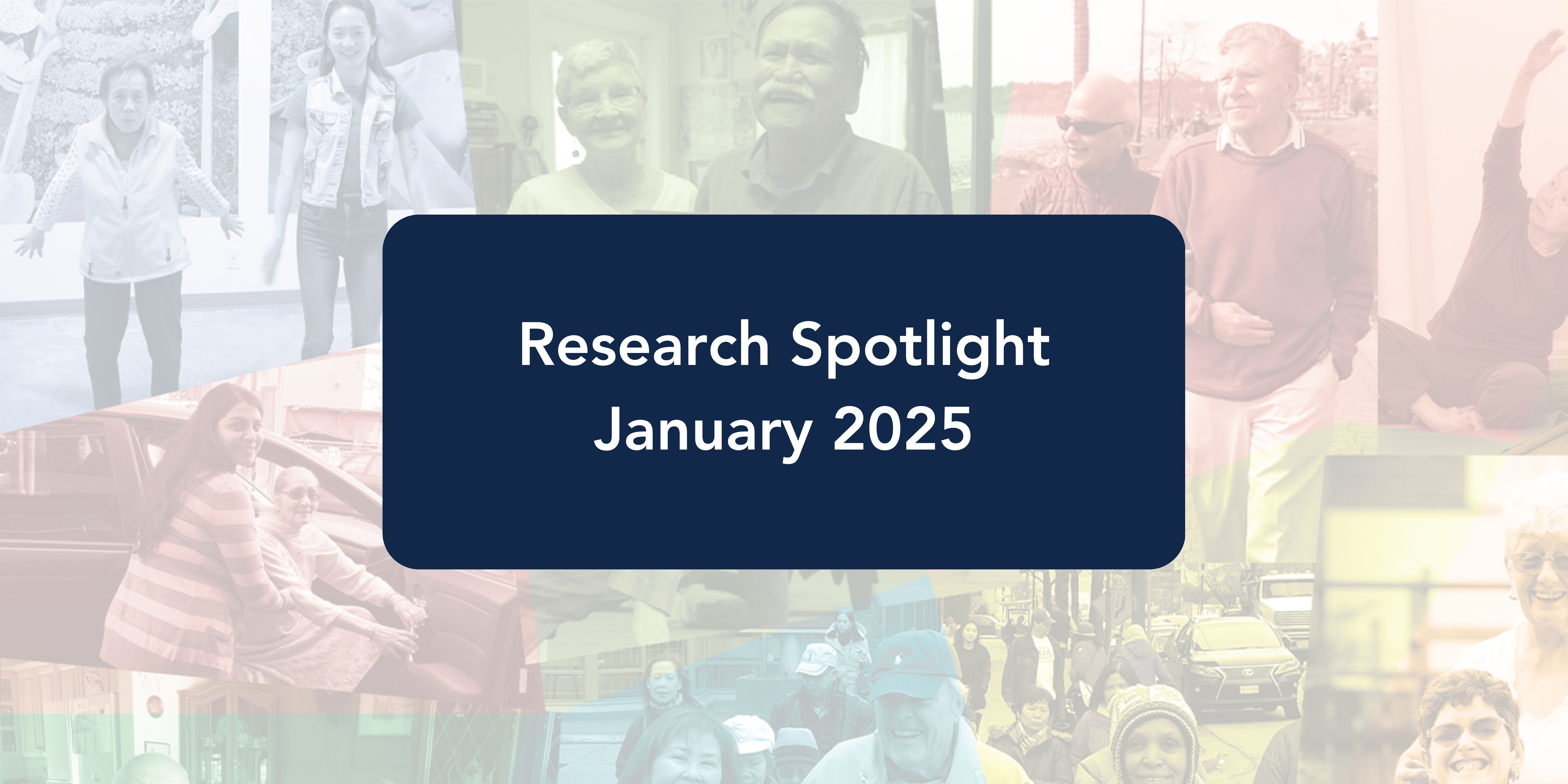Healthy Aging CORE Research Spotlight: January 2025

Research Spotlight: ALZEducate
ALZEducate is an initiative of the Alzheimer's Society dedicated to providing high-quality, best practice-based online education for all using adult learning principles that support real learning and change. The website includes a range of free evidence-based courses and webinars for people living with dementia/care partners and the general public. Examples of available topics include dementia-friendly communities, estate planning, and supporting communication. The website also includes courses and webinars that provide updates on recent research, including the 2024 landmark study The Many Faces of Dementia in Canada.
New Research on CORE
New Statistics Canada Research
The poverty rate and low-income situation of older persons in Canada: An intersectional analysis
This report draws a portrait of the economic situation of older Canadians – with a special focus on different groups of older women. In Canada, the low-income rates of older persons have dropped significantly over the past decades, especially from the late 1970s to the mid-1990s. However, they have lost ground relative to the incomes of younger persons aged 18 to 64 years since the mid-1990s, increasing the gap between both generations’ incomes. Among the older adult population, older racialized women (18.6% and 9.1%, respectively) were the most likely of all groups to live in low income in 2020, followed by older immigrant women
New Journal Articles
Savage, R. D., Sutradhar, R., Luo, J., Strauss, R., Guan, J., Rochon, P. A., Gruneir, A., Sanmartin, C., Goel, V., Rosella, L. C., Stall, N. M., Chamberlain, S. A., Yu, C., & Bronskill, S. E. (2024). Sex-based trajectories of health system use in lonely and not lonely older people: A population-based cohort study. Journal of the American Geriatrics Society, 72(4), 1100–1111. https://doi.org/10.1111/jgs.18833
In this study, the authors analyzed data from 2,684 older Ontarians from the 2008/2009 Canadian Community Health Survey. The study found that moderately and severely lonely older adults had a higher probability of needing home care or long-term care than those who were not lonely. Severely lonely older women had the highest risk of moving to these settings.
Joshi, P., Hendrie, K., Jester, D. J., Dasarathy, D., Lavretsky, H., Ku, B. S., ... & Tampi, R. R. (2024). Social connections as determinants of cognitive health and as targets for social interventions in persons with or at risk of Alzheimer’s disease and related disorders: A scoping review. International Psychogeriatrics, 36(2), 92-118.
This scoping literature review synthesizes the findings of 11 meta-analyses and systematic reviews on the relationship between social connections and cognitive decline or Alzheimer's disease. Social engagement and social activities were consistently associated with decreased risk of cognitive decline or Alzheimer's disease. Several studies also found that marital status (being married/in a relationship) was also associated with decreased risk.
Kastner, M., Herrington, I., Makarski, J., Amog, K., Bain, T., Evangelista, V., ... & Holroyd-Leduc, J. (2024). Interventions that have potential to help older adults living with social frailty: a systematic scoping review. BMC geriatrics, 24(1), 521. https://doi.org/10.1186/s12877-024-05096-w
In this scoping review, the authors identified interventions that have the best potential to help socially frail older adults. A total of 495 interventions were identified of which 189 were effective for improving loneliness, social and/or health and wellbeing outcomes. The most effective intervention types were psychological self-management, self-management education, leisure activity, physical activity, information communication technology and socially assistive robot interventions.
-
Date
Jan 22, 2025
-
By
Healthy Aging CORE
